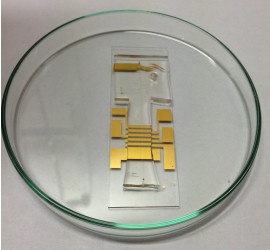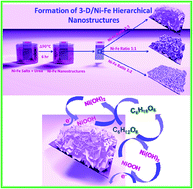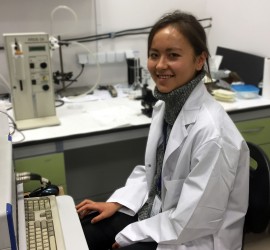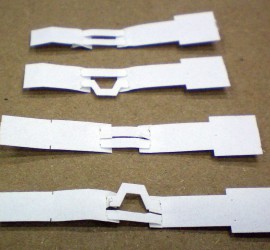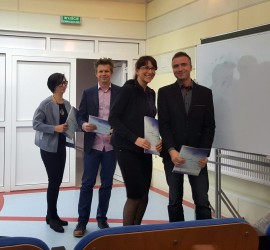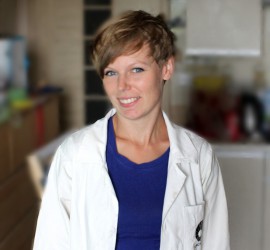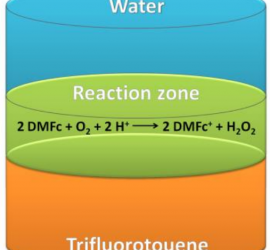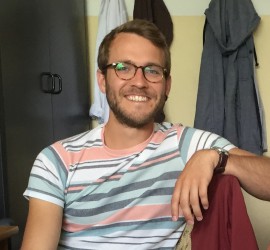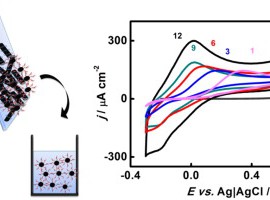We just published a short tip in Lab on a Chip’s blog Chips and Tips. It shows how one can easily remove bonded PDMS from a glass chip, with the help of sulfuric acid, so that the chip can be used again.
Yearly archives: 2015
A paper with Martin as one of the corresponding authors was just published in Nanoscale describing the formation of a new electrode material of nickel-iron nanosheets on a carbon paper. The material is made by hydrothermal decomposition of FeCl2 and of Ni(NO3)2 in an autoclave vessel. Depending on the ratio of […]
Welcome to the newest member of the group, Paulina Jeleń. Paulina studied nanostructure engineering at University of Warsaw. This is a interdisciplinary field divided between the physics and the chemistry departments. She wrote her master thesis at the chemistry department, but graduated as a physicist. She has joined the group […]
Alex, who visited us in July, wrote about his visit in the INTREPID Forensics newsletter. He seems to have had a good time here, I just hope he wasn’t too disappointed with the Maria Skłodowska-Curie museum, which is a bit underwhelming. We are looking forwards to Alex’s next visit some […]
Emilia’s Ph.D. thesis entitled “Analysis of Samples of Clinical and Alimentary Interest with Paperbased Devices“ was just awarded with the Springer thesis prize and will be published in their book series Springer Theses – the “best of the best”, recognizing outstanding Ph.D. research that “must represent a significant scientific advance”. Normally, editors […]
Every year our institute awards the “best paper” published during the previous year. Six papers are awarded: A winner, a runner-up, a third place and three mentions. This year the paper “Antibody modified gold nanoparticles for fast and selective, colorimetric T7 bacteriophage detection” (Bioconjugate Chem. 25, 644-648 (2014)) was one […]
We all welcome Dr Emilia Witkowska Nery as a new co-worker in the research group. Emilia finished her PhD in chemistry at University of Campinas in Brazil. Her scientific interests revolved around the integration of biology and chemistry in sensors such as an electronic tongue. Her previous work also involved […]
Wojtek is the main author of a new paper published in J. Phys. Chem. C on hydrogen peroxide generation at liquid|liquid interfaces. This is the latest in a series of papers (e.g. 1-5) about various reactions at the interface between immiscible liquids published in collaboration with Hubert Girault’s group in […]
Alex Smyth from University of Leicester has been visiting Warsaw for a few days to discuss what he will be doing during his further secondment to our group. Alex is a PhD student in the Intrepid Forensics project and his original research plans involved fingerprints and electrowetting, but now only […]
It took some time, but finally, in a paper in Electrochimica Acta, results from Marcin’s master thesis were published. In this paper a layer-by-layer method is used to create an electrode with carbon nanoparticles and carbon nanotubes with opposite charges. The electrode was then used for detection of thiocholine at […]

